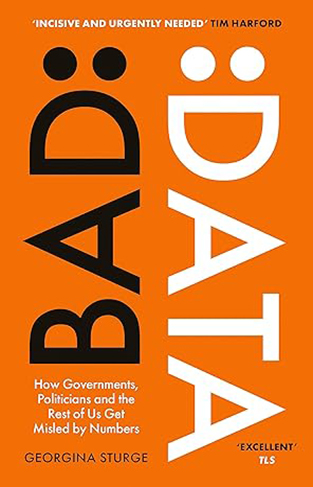'Essential reading ... An incisive and urgently needed book' Tim Harford
'[An] entertaining introduction to the uses (and misuses) of data ... a penetrating analysis of why statistical literacy matters to our politics and our daily lives' Professor Jonathan Portes
Our politicians make vital decisions and declarations every day that rely on official data. But should all statistics be trusted?
In BAD DATA, House of Commons Library statistician Georgina Sturge draws back the curtain on how governments of the past and present have been led astray by figures littered with inconsistency, guesswork and uncertainty.
Discover how a Hungarian businessman's bright idea caused half a million people to go missing from UK migration statistics. Find out why it's possible for two politicians to disagree over whether poverty has gone up or down, using the same official numbers, and for both to be right at the same time. And hear about how policies like ID cards, super-casinos and stopping ex-convicts from reoffending failed to live up to their promise because they were based on shaky data.
With stories that range from the troubling to the empowering to the downright absurd, BAD DATA reveals secrets from the usually closed-off world of policy-making. It also suggests how - once we understand the human story behind the numbers - we can make more informed choices about who to trust, and when.












